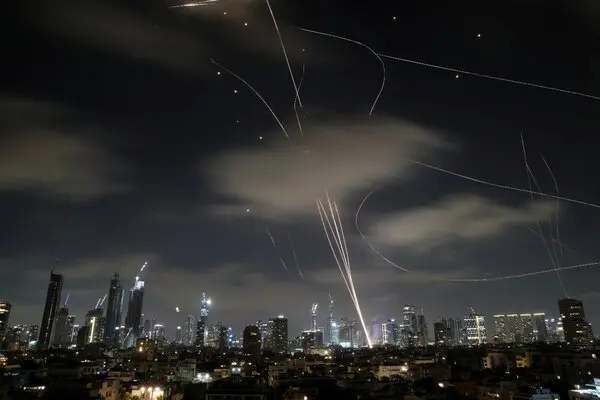The question of whether Iran violated the ceasefire has gripped global attention, sparking debates and raising tensions in the Middle East. On June 24, 2025, mere hours after U.S. President Donald Trump announced a ceasefire between Iran and Israel, accusations flew from both sides, threatening the fragile truce. Israel claimed Iran launched missiles, breaching the agreement, while Tehran vehemently denied these allegations. This article dives into the latest developments surrounding these claims, exploring the events, reactions, and what they mean for the region’s stability.
Israel’s Accusations Against Iran
Israel’s Defense Minister Israel Katz made headlines on June 24, 2025, when he accused Iran of violating the ceasefire. According to Israeli military reports, two missiles were launched from Iran toward Israel around 10:30 a.m. local time, just 2.5 hours after the truce took effect. The Israel Defense Forces (IDF) stated that these missiles were intercepted, but Katz called the act a “blatant violation” and ordered “high-intensity strikes” on Tehran, targeting regime assets and infrastructure. Israeli Prime Minister Benjamin Netanyahu, who had earlier confirmed Israel’s agreement to the ceasefire, warned that any violation would face a forceful response. The accusations stirred skepticism about the truce’s viability, as Israel insisted it had achieved its objectives, including neutralizing Iran’s nuclear and missile capabilities.
Iran’s Denial and Counterclaims
Iran swiftly rejected Israel’s claims. The Iranian armed forces’ general staff, via state-run media, denied launching any missiles after the ceasefire began. Tehran’s narrative paints Israel as the aggressor, alleging that Israeli strikes continued until 9 a.m. local time, 90 minutes past the truce’s start. Iran’s Foreign Minister Abbas Araghchi had previously stated that Iran would halt its attacks if Israel ceased hostilities by 4 a.m. Tehran time, suggesting a conditional pause rather than a formal agreement. Iran’s Supreme National Security Council emphasized that its military remained on high alert, ready to respond to any further aggression. This back-and-forth has fueled uncertainty, with both nations accusing each other of undermining the ceasefire.
Key Point Summary
- Israel’s Claim: Iran launched two missiles on June 24, 2025, violating the ceasefire.
- Iran’s Response: Tehran denies firing missiles, accusing Israel of continued attacks post-truce.
- U.S. Reaction: President Trump expressed frustration, urging both sides to honor the agreement.
- Global Impact: Markets rallied, but doubts linger about the ceasefire’s stability.
Trump’s Role and Reaction
President Donald Trump played a central role in brokering the ceasefire, announcing it on Truth Social with a plea: “THE CEASEFIRE IS NOW IN EFFECT. PLEASE DO NOT VIOLATE IT!” He described the truce as a potential end to the “12 Day War,” expressing optimism that it could last “forever.” However, as accusations of violations surfaced, Trump voiced frustration, particularly with Israel, for “unloading” after agreeing to the deal. He also noted Iran’s weakened nuclear capabilities, suggesting the ceasefire stemmed from Tehran’s diminished position. Trump’s direct warning to Israel—“DO NOT DROP THOSE BOMBS”—underscored his efforts to maintain the truce, but his comments revealed the challenges of enforcing peace amid mutual distrust.
Global Reactions to the Ceasefire Tensions
The international community watched closely as the ceasefire teetered. Qatar, a key mediator, condemned Iran’s earlier missile attack on the U.S. Al Udeid Air Base, calling it a violation of its sovereignty. German Chancellor Friedrich Merz urged both nations to adhere to the truce, while Russia expressed support for Iran, criticizing U.S. and Israeli actions. The United Nations nuclear watchdog, led by Rafael Grossi, called for Iran to cooperate in verifying its nuclear program, highlighting ongoing concerns about Tehran’s intentions. Global markets reacted positively to the initial ceasefire announcement, with oil prices dropping and stocks rising, but the fresh allegations of Iran violating the ceasefire have reintroduced uncertainty.
What’s Next for the Ceasefire?
The question remains: did Iran violate the ceasefire, or is Israel escalating tensions? The lack of independent verification complicates the narrative. Both sides have incentives to claim victory or victimhood, with Israel emphasizing its military gains and Iran asserting its resilience. The ceasefire, intended to end 12 days of intense conflict, hangs by a thread as diplomatic efforts intensify. Qatar and other regional players are pushing for indirect talks, while the U.S. hopes to leverage the truce for broader Middle East stability, including in Gaza. For now, the world waits to see if the ceasefire can hold or if retaliatory strikes will reignite the conflict.
The Human Cost and Regional Implications
Before the ceasefire, the conflict claimed lives on both sides. Iranian strikes on Beersheba, Israel, killed at least four people, while Israeli attacks in northern Iran left nine dead, including a nuclear scientist. The human toll underscores the stakes of maintaining peace. If Iran violated the ceasefire, as Israel claims, it risks further escalation, potentially drawing in more regional actors. Conversely, if Israel’s strikes continued post-truce, as Iran alleges, it could undermine trust in future negotiations. The region stands at a crossroads, with diplomacy or renewed warfare as possible outcomes.
Conclusion: A Fragile Path to Peace
The accusations that Iran violated the ceasefire have cast a shadow over hopes for peace. Israel’s swift retaliation orders and Iran’s firm denials highlight the deep mistrust between the two nations. Trump’s diplomatic push, backed by Qatar and others, offers a glimmer of hope, but the ceasefire’s success depends on both sides honoring their commitments. As the world watches, the next few hours and days will be critical in determining whether this truce can pave the way for lasting stability or collapse under the weight of mutual accusations. Stay informed on this evolving story by following trusted news outlets for real-time updates.
